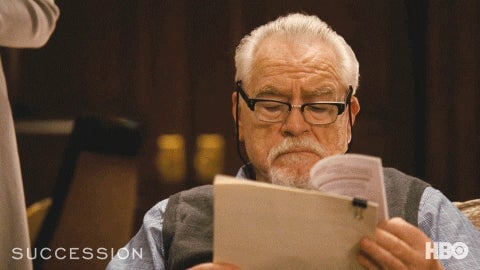The efficient market hypothesis: Fact or fiction?
The beautiful dream.

In theory, it works
Presumably, investors are supposed to trade stocks based on all available information. In a perfect world, stock markets are efficient at absorbing new information about a company so the majority of investors make the right decisions, creating a market in which all securities are worth what they should be.
If this were the case in real life, the efficient market hypothesis (EMH)—which posits that markets are inherently efficient and there is no difference between a stock price and the actual underlying value of a company—would make a lot of sense.
In its purest form, that scenario would also mean it would be impossible for any individual fund to beat the average returns of the entire market over an extended period of time. In 2010, Berkshire Hathaway chief Warren Buffett likened this theory’s true believers to those who strongly believe the Earth is flat.
Let’s get cynical.
By the digits
39: Number of years out of the last 58 that Warren Buffett has beat the market
4%: Amount that Berkshire Hathway gained last year while the S&P 500 dropped by 19%
25%: Share of active funds that beat their passive peers in the 10 years ending in December 2022, according to the Morningstar “US Active/Passive Barometer”
43%: Share of active funds that outperformed their passive fund peers in 2022

Efficiency—or luck?
To be clear, the “efficient” part of the EHM does not mean that markets run well all the time or that they represent rational behavior on the part of investors. Economists—and, frankly, most academics—often use common words to define a very precise phenomenon.
Here, “efficient” simply means that stock prices reflect all of the available information. In 2014, American economist John Cochrane pointed out that the empirically true part of this hypothesis is that there are no simple trading techniques for beating the markets and that trading rules, technical systems, and market newsletters can only rely on luck when trying to predict a stock price.
Quotable
“The most fundamental principle of all in gambling is simply equal conditions, e.g. of opponents, of bystanders, of money, of situation, of the dice box, and of the die itself. To the extent to which you depart from that equality, if it is in your opponent’s favor, you are a fool, and if in your own, you are unjust.”
Pop quiz

Which market participants are least likely to believe in the efficient market hypothesis?
A. Day traders—a person who buys and sells stocks throughout the day
B. Waystar Royco founder Logan Roy
C. Angel investors—ultra wealthy investors who often provide first-time financing for startups
D. Market technicians—they look for patterns in historical price data to determine market psychology
Believe... that the correct answer is at the bottom.
Brief history
1828: Botanist Robert Brown published his observations on grains of pollen suspended in water moving in a rapid oscillatory motion under a microscope. His observations of randomness will later be used to describe markets.
1863: French stockbroker Jules Regnault finds that the longer you hold a security, the more it deviates up or down from its original price.
1900: French mathematician Louis Bachelier used data from the Paris Stock Exchange to prove that stock prices take “random walks” above and below their true values.
1905: Albert Einstein coins the term Brownian Motion, after Robert Brown (he of the pollen grains), when describing his theory about how particles move at random. The term will ultimately also be used to describe Bachelier’s “random walks” and supports the efficient markets hypothesis’ claim that past performance doesn’t predict future stock prices.
1923: English economist John Maynard Keynes says that investors aren’t rewarded for knowing better than the market but for bearing risk.
1925: Economist Frederick Macaulay finds similarities between stock market movements and a chance curve created by throwing dice.
1956: Bachelier’s work appears in a thesis by then MIT student Paul Samuelson on options-like pricing.
1965: American economists Eugene Fama and Paul Samuelson create the efficient markets hypothesis. Both economists were responding to empirical studies of the random character of stock prices when developing the hypothesis.
1973: Fischer Black, Robert Merton, and Myron Scholes develop the Black-Scholes-Merton (BSM) model which becomes a reliable tool for pricing options but still deviates from real-world stock price action.
Explain it like I’m 5
Populism hits the markets
The EMH hypothesis has also been supported in recent years with the rise of what economics writer Noah Smith calls “financio-populism.” Examples include small traders on Reddit who felt that they could upend hedge fund short positions–leading to meme stocks becoming their own asset class. Alternatively, some Americans see crypto as a way to redistribute financial wealth, a view that has led to everything from investing in bitcoin to NFT mania.
And while this research warns small investors that on average they can’t outperform the market, Smith says there’s an even better theory that can guide investors on their decision-making: adverse selection, or the idea that someone who’s eager to sell you something thinks an asset is worth less than what they’re selling it for.
Most of the crypto-faithful sold bitcoin for more than $65,000 a pop because they convinced other investors of the coin’s ability to one day replace regular money if people around the world lost faith in centralized institutions, Smith notes. They sold that bitcoin on a promise about the asset’s future worth, not on the actual underlying value of bitcoin.
Adverse selection hurts poor investors and benefits rich investors the most, Smith notes. While several small day traders lost money in the tech bubble of the 1990s and early 2000s, hedge funds were able to sell at the top. Professional investors consistently underperform average gains in stock markets, but when there are active investors who are winning in a market they are much more likely to be rich than poor. Rich investors have the tools to detect sentiment in Robinhood trading data that less-well-off investors won’t be able to access.
Watch this!
Advice from Warren
Warren Buffett’s success has less to do with smart stock picking and more to do with his value investing strategy, notes Ben Felix, head of research at PWL Capital.
take me down this 🐰 hole!
Understanding that the EMH has always been a mere approximation of reality can help consumers make sense of other financial decisions they have to make, argues economist Scott Sumner.
Because consumers are constantly shopping for the best prices between grocery stores, some shoppers can rely on the grocery market absorbing information quickly and keeping the prices of products competitive. These shoppers then can save time by not shopping around for the best deal all the time. (However, since poor Americans are the ones that spend a larger portion of their incomes on food, Sumner’s time savings may only be possible because of income disparities).
The proliferation of online consumer reviews makes the internet itself a fairly efficient market, Sumner points out. For instance, on Cyber Monday—the Monday following Thanksgiving in the US—Sumner says he feels comfortable just buying the most popular brand of an item versus searching for long times for the best deal. On some level, most people can trust that efficient markets will give them the best product for their buck.
Poll

Which version of the EMH do you hold to?
- Weak form EMH: All past information is represented in stock prices
- Semi-strong EMH: All current public information is represented in stock prices
- Strong EMH: All public and private information is represented by stock prices
- I’m putting all my cash under a mattress so as never to have to think about this again
It’s time to decide—the market won’t decide for you.
💬let’s talk!
In our last poll about cordyceps, 35% of you would, in the event of a fungus-zombie apocalypse, hunker down in a prepped basement. But 32% of you would plant a strawberry garden with your true love. And really, those aren’t mutually exclusive.
Today’s email was written by Nate DiCamillo (passively investing), and edited and produced by Annaliese Griffin (efficiency maven, market novice) and Susan Howson (everything novice).